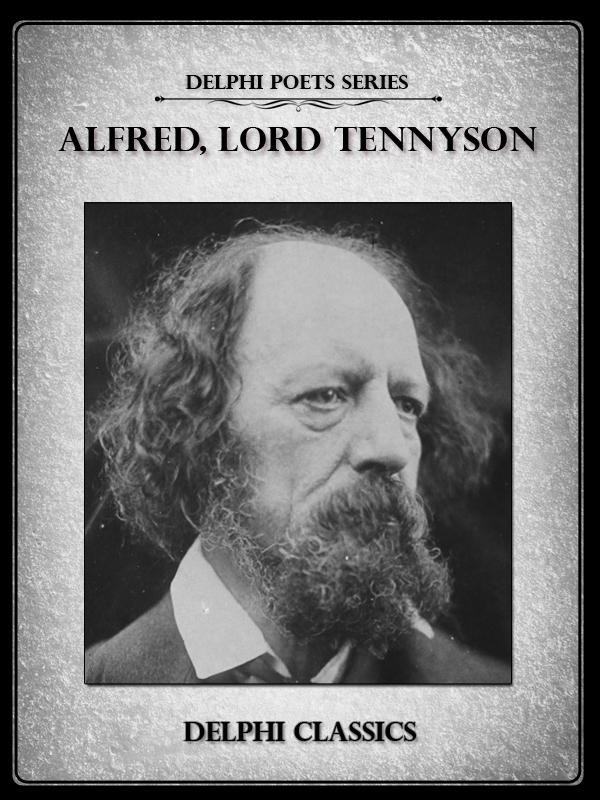
Delphi Complete Works of Alfred, Lord Tennyson (Illustrated) PDF
2013·4.0095 MB·other
Most books are stored in the elastic cloud where traffic is expensive. For this reason, we have a limit on daily download.
Preview Delphi Complete Works of Alfred, Lord Tennyson (Illustrated)
Description:
Alfred, Lord Tennyson, was the leading poet of the Victorian Age in England and by the mid-19th century had come to occupy a position similar to that of Alexander Pope in the 18th. His poetry is remarkable for its metrical variety, rich descriptive imagery, and exquisite verbal melodies. But Tennyson was also regarded as the preeminent spokesman for the educated middle-class Englishman, in moral and religious outlook and in political and social consciousness no less than in matters of taste and sentiment. His poetry dealt often with the doubts and difficulties of an age in which established Christian faith and traditional assumptions about man's nature and destiny were increasingly called into question by science and modern progress. His poetry dealt with these misgivings, moreover, as the intimate personal problems of a sensitive and troubled individual inclined to melancholy. Tennyson may be seen as the first great English poet to be fully aware of the new picture of man's place in the universe revealed by modern science. While the contemplation of this unprecedented human situation sometimes evoked his fears and forebodings, it also gave him a larger imaginative range than most of the poets of his time and added a greater depth and resonance to his art.
20th-century criticism, influenced by the rise of a new school of poetry headed by T.S. Eliot (though Eliot himself was an admirer of Tennyson), proposed some drastic devaluations of his work. Undoubtedly, much in Tennyson that appealed to his contemporaries has ceased to appeal to many readers today. A more balanced estimate of Tennyson has begun to prevail, however, with the recognition of the enduring greatness of “Ulysses,” the unique poignancy of Tennyson's best lyric poems, and, above all, the stature of In Memoriam as the great representative poem of the Victorian Age. the perception of the poet's awed sense of the mystery of life, which lies at the heart of his greatness, as in “Crossing the Bar” or “Flower in the Crannied Wall,” unites his admirers in this century with those in the last. Though less of Tennyson's work may survive than appeared likely during his Victorian heyday, what does remain—and it is by no means small in quantity—seems likely to be imperishable.
CONTENTS:
The Poetry Collections
POEMS, BY TWO BROTHERS
TIMBUCTOO : A POEM
POEMS, CHIEFLY LYRICAL
POEMS, 1832
THE LOVER’S TALE. A FRAGMENT.
POEMS, 1842
MISCELLANEOUS CONTRIBUTIONS TO PERIODICALS, 1831-1868
THE PRINCESS: A MEDLEY
IN MEMORIAM A. H. H.
MAUD, AND OTHER POEMS
IDYLLS OF THE KING
ENOCH ARDEN AND OTHER POEMS
BALLADS AND OTHER POEMS
TIRESIAS AND OTHER POEMS
LOCKSLEY HALL SIXTY YEARS AFTER, ETC.
DEMETER AND OTHER POEMS
THE DEATH OF ŒNONE, AND OTHER POEMS
The Poems
LIST OF POEMS IN CHRONOLOGICAL ORDER
LIST OF POEMS IN ALPHABETICAL ORDER
The Plays
QUEEN MARY: A DRAMA
HAROLD: A DRAMA
BECKET
THE CUP: A TRAGEDY
THE FALCON
THE PROMISE OF MAY
THE FORESTERS: ROBIN HOOD AND MAID MARIAN
The Biographies
TENNYSON AND HIS FRIENDS by Hallam, Lord Tennyson
ALFRED TENNYSON by Andrew Lang
TENNYSON’S LIFE AND POETRY by Eugene Parsons
20th-century criticism, influenced by the rise of a new school of poetry headed by T.S. Eliot (though Eliot himself was an admirer of Tennyson), proposed some drastic devaluations of his work. Undoubtedly, much in Tennyson that appealed to his contemporaries has ceased to appeal to many readers today. A more balanced estimate of Tennyson has begun to prevail, however, with the recognition of the enduring greatness of “Ulysses,” the unique poignancy of Tennyson's best lyric poems, and, above all, the stature of In Memoriam as the great representative poem of the Victorian Age. the perception of the poet's awed sense of the mystery of life, which lies at the heart of his greatness, as in “Crossing the Bar” or “Flower in the Crannied Wall,” unites his admirers in this century with those in the last. Though less of Tennyson's work may survive than appeared likely during his Victorian heyday, what does remain—and it is by no means small in quantity—seems likely to be imperishable.
CONTENTS:
The Poetry Collections
POEMS, BY TWO BROTHERS
TIMBUCTOO : A POEM
POEMS, CHIEFLY LYRICAL
POEMS, 1832
THE LOVER’S TALE. A FRAGMENT.
POEMS, 1842
MISCELLANEOUS CONTRIBUTIONS TO PERIODICALS, 1831-1868
THE PRINCESS: A MEDLEY
IN MEMORIAM A. H. H.
MAUD, AND OTHER POEMS
IDYLLS OF THE KING
ENOCH ARDEN AND OTHER POEMS
BALLADS AND OTHER POEMS
TIRESIAS AND OTHER POEMS
LOCKSLEY HALL SIXTY YEARS AFTER, ETC.
DEMETER AND OTHER POEMS
THE DEATH OF ŒNONE, AND OTHER POEMS
The Poems
LIST OF POEMS IN CHRONOLOGICAL ORDER
LIST OF POEMS IN ALPHABETICAL ORDER
The Plays
QUEEN MARY: A DRAMA
HAROLD: A DRAMA
BECKET
THE CUP: A TRAGEDY
THE FALCON
THE PROMISE OF MAY
THE FORESTERS: ROBIN HOOD AND MAID MARIAN
The Biographies
TENNYSON AND HIS FRIENDS by Hallam, Lord Tennyson
ALFRED TENNYSON by Andrew Lang
TENNYSON’S LIFE AND POETRY by Eugene Parsons
See more
The list of books you might like
Most books are stored in the elastic cloud where traffic is expensive. For this reason, we have a limit on daily download.
